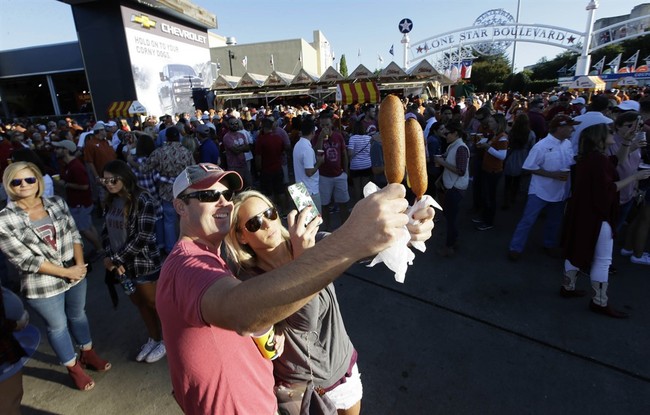Texas Attorney General Ken Paxton struck out for a third time in his attempt to get rid of the Texas State Fair’s new prohibition on licensed concealed carry, with the Texas Supreme Court ruling the AG had failed to explain why the private non-profit that runs the state fair cannot prohibit firearms while the fair takes place.
In an opinion issued Thursday, Justice Jimmy Blacklock wrote that — despite suing over the ban — Paxton’s office “takes no position” on whether the State Fair itself, a private nonprofit, can legally exclude handgun carriers from the fair.
Throughout the course of Paxton’s lawsuit against the fair and the city of Dallas, the attorney general has argued Dallas officials are effectively acting through the State Fair organization to ban guns from the city-owned Fair Park — which he says is illegal.
“Even if that is true—and it may well be—this would not mean that handgun owners are entitled by law to carry their weapons at the State Fair despite the State Fair’s contrary policy,” the opinion reads. “On that pivotal question, the State’s filings are conspicuously silent.”
The Texas Supreme Court noted that back in 2016 Paxton issued an advisory opinion stating that private non-profits could prohibit concealed carry on property they lease from the state or local governments. Though Paxton rescinded that opinion shortly before he filed suit against the fair board and the city of Dallas, which owns the 277-acre Fair Park, the justices stated that “withdrawing the Opinion is not the same thing as repudiating its analysis or explaining why it was wrong, which the State has not attempted to do in this Court.”
If the AG Opinion was correct about the common-law authority of private parties who lease public property, then the privately operated State Fair may well have the authority to exclude handguns from the Fair, and this is the case even if the State is completely right about the City of Dallas’s obligations under section 411.209. If the AG Opinion was wrong, then surely the party seeking a result at odds with its own publicly stated opinion must at least explain why its opinion was wrong.
The State’s filings obliquely suggest that there may be Second Amendment problems with the Fair’s gun policy, but the suggestion is slight and indirect, and any such argument is not explained. Likewise, in its briefing to the court of appeals, the State alleged that the City of Dallas controls or influences the State Fair in various ways, insinuating that the State Fair’s gun policy is actually the City’s policy. Even accepting the State’s factual allegations as true—which we are not obliged to do at this stage—the allegations that the City controls the Fair amount only to scattered and indeterminate financial connections between the entities, not the kind of control that would make the State Fair’s decisions about guns imputable to the City. The State further alleged that the City appoints community members to the South Dallas/Fair Park Opportunity Fund Board, but the State failed to explain how that board is connected to the State Fair or how it may have influenced the Fair’s gun policy, if at all.
The justices went on to say that it’s possible that “future litigation could reveal that the City impermissibly controlled or influenced the State Fair’s gun policy, it is not possible for an impartial court to conclude at this stage of the case that anything like that has happened.”
But at this stage, every indication is that the State Fair’s private board made its own decision to prohibit guns at this year’s Fair. It should go without saying—though perhaps it cannot be said often enough—that a judge’s role in this case is not to decide whether the State Fair made a wise decision. Our job, instead, is to decide whether Texas law allowed the State Fair to make the decision for itself. The State declines to take a position on that essential question but nevertheless asks this Court for an injunction overriding the State Fair’s decision. It should also go without saying that our answer, for now, must be no.
The decision by the Texas Supreme Court means that this year’s fair will indeed be a “gun-free zone” in name, though given the fact that someone without a valid carry license managed to bring a gun onto the fairgrounds last year is a pretty good indication that it may not be “gun-free” in reality. I certainly hope that this year’s fair is a safe and fun environment for the attendees, but the fair board’s decision to bar those with carry licenses from being able to protect themselves and their families on the grounds or as they make their way back to their vehicle only puts good people at risk of harm.
Read the full article here





